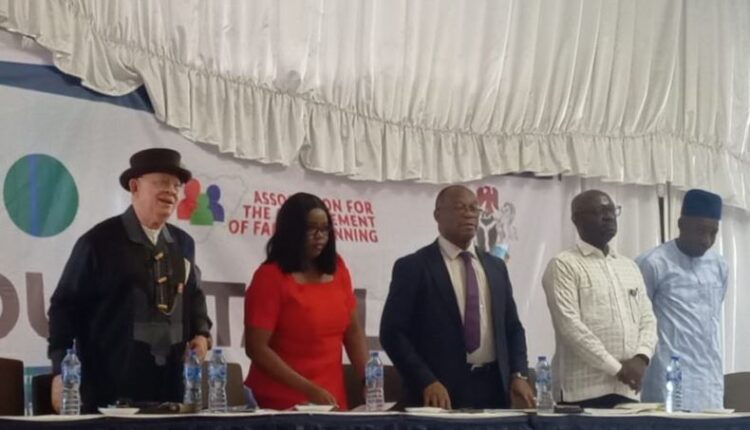Family Planning: Population Surge Fuels Insecurity, Unrest – Ejike


ABUJA – Nigeria’s population has surged from 140 million in 2007 to over 250 million today, with 75% of the population under the age of, 24 largely unemployed and uneducated.
This alarming demographic trend has exacerbated insecurity, increased immigration pressures, and fueled social unrest, said Dr Ejike Oji, the Chairman of the Association of the Advancement of Family Planning (AAFP).
Speaking ahead of the 8th National Family Planning Conference 2024 Media roundtable on Tuesday in Abuja scheduled for December 2 to 6, emphasized the urgent need to tackle the country’s fertility rate and its implications on national development.
“Nigeria is facing a demographic crisis that demands immediate attention. The conversation around family planning is crucial, and we need to support governments in doing the right thing,” he stated.
Ejike expressed concerns over a significant reduction in funding for family planning programs, saying,“Recently, $4 billion was removed from UNFPA, and we are advocating for the remaining $2 billion to be removed this fiscal year. This funding is critical to addressing Nigeria’s growing population and its ripple effects on security, education, and health systems,” he noted.
The upcoming National Family Planning Conference will serve as a pivotal platform for addressing Nigeria’s demographic challenges. The conference, themed around population growth and fertility rates, will feature pre-conferences focusing on women, youth, and interfaith discussions.
Notable attendees include Martin Sankuru, the Coordinating Minister of Health and Social Welfare; Amina Mohammed, former Minister of Health and Deputy Secretary-General of the United Nations; and the Executive Director of AP2030.
“This conference isn’t just about dialogue; it’s about action. We urge participants to share the discussions and outcomes beyond this conference to drive impactful change,” he added.
Dr. Ejike underscored the importance of a collaborative approach, engaging government officials, international partners, and civil society to address the challenges posed by the country’s growing population.
“Nigeria’s demographic crisis requires immediate attention, and we must work together to implement sustainable solutions. Family planning is not just a health issue it’s an economic, social, and security imperative,” he said.
With a focus on driving actionable outcomes, the 8th National Family Planning Conference promises to be a landmark event in tackling Nigeria’s demographic challenges. Stakeholders are hopeful that the conversations and commitments made during the conference will translate into policies and initiatives that prioritize family planning, education, and economic empowerment to secure a brighter future for Nigeria.